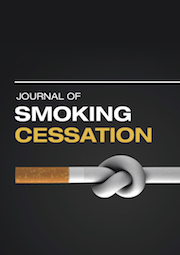No CrossRef data available.
Article contents
Effects of Feedback on Spirometry in Primary Care on Motivation for Smoking Cessation
Published online by Cambridge University Press: 21 February 2012
Abstract
We evaluated the effect of feedback after opportunistic spirometry in general practice on motivation for smoking cessation using stage change in the transtheoretical model. A total of 328 smokers aged over 35 years were given immediate feedback on the presence or absence of lung damage due to smoking, plus brief standard cessation advice. At 3 months, 99 (30.2%) smokers reported making an attempt to quit and 17 (5.2%) smokers reported moving into action stage for cessation. Of 297 (80.5%) successfully followed up, 81 (27.3%) smokers demonstrated forward shift and 35 (11.8%) smokers demonstrated backward shift. Feedback on the presence of lung damage was not significantly associated with reporting a quit attempt (p = .31) or moving into action stage for cessation (p = .30). Odds of forward or backward shift were not independently associated with either feedback on the presence of lung damage or normal lung function. Odds of backward shift with feedback on lung damage depended on participants' assessments of quit benefits, which were correlated with their prior self-assessment of lung damage. Our findings suggest that feedback to smokers after spirometry about the absence of lung damage is not harmful. However, eliciting personal health attitudes is also important so cessation advice can be tailored especially for smokers who believe they already have lung damage from smoking.
- Type
- Articles
- Information
- Copyright
- Copyright © Cambridge University Press 2009


